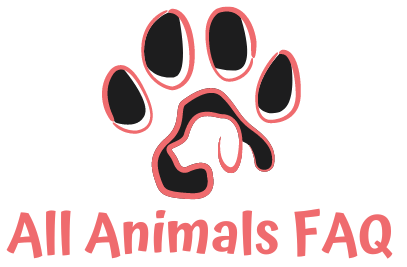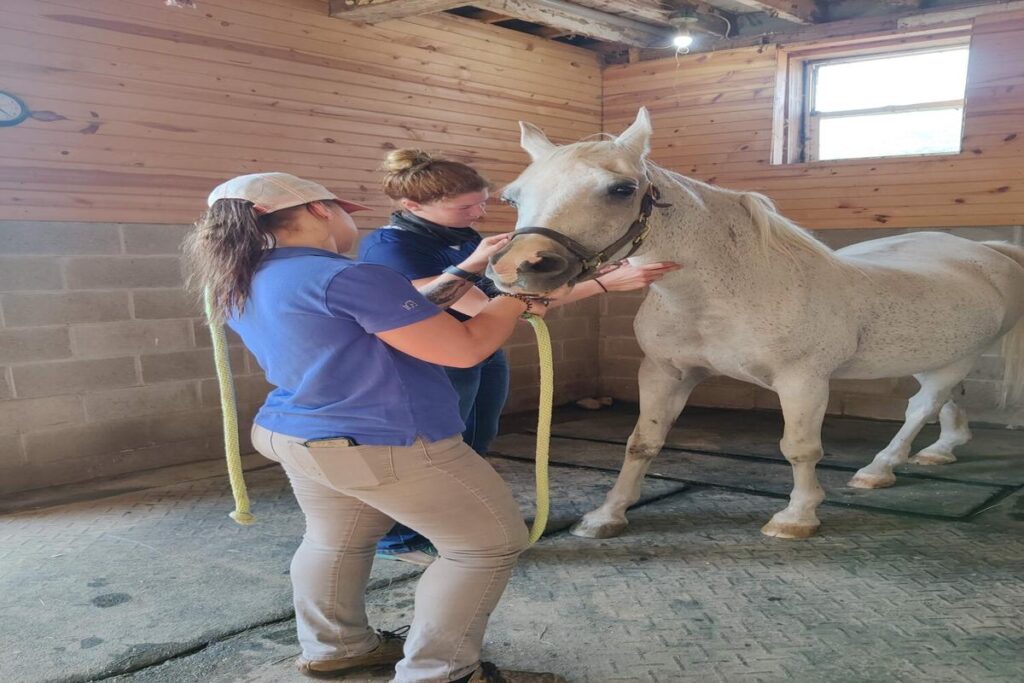Adult horse vaccines. Vaccines help minimize disease risk, and while no vaccine is 100% effective, vaccinated horses contract infectious diseases less frequently and their illness signs are less severe than those of unvaccinated horses. Ideally, all horses in your herd should follow the same vaccine schedule .
Why Do Horses Need Vaccinations?
Protection from life-threatening diseases Vaccinations are vital for ensuring that your horse does not contract any life-threatening diseases or illnesses. Tetanus is considered to be one of the most fatal diseases equine can catch and carry. It is afatal condition that most horses will not recover from.
How Do Vaccines Work To Prevent Diseases In Horses?
The vaccine is usually amodified, weaker version of the disease you are trying to prevent. When the vaccine is given to your horse, their body creates antibodies to fight this “mock disease”, and these antibodies will stay in the body for aperiod of time after the vaccination.
What Is The Best Vaccine For Horses?
In general, we recommend that your horse receive EWT/WN, PHF/Rabies, Strangles, and Flu/Rhino in the Spring, and PHF and Flu/Rhino in the Fall. Based on your horse’s risk factors, you may be able to eliminate some vaccines – always speak to your veterinarian to determine the best plan for your horse.
What Are The Side Effects Of Horse Vaccines?
After receiving avaccine(s) intramuscularly, some horses experience local muscular swelling and soreness or transient, self-limiting signs including fever, anorexia, and lethargy. Severe reactions at sites of injection can be particularly troublesome, requiring prolonged treatment and convalescence.
Why Do Horses Need Injections?
Medicating Damaged Joints Horses can get arthritis too, and it’s unfortunately common in older horses. Like human arthritis, it is adegenerative joint disease that can cause chronic pain and inflammation. It also has no cure, so the only option is to manage it. This is where medicinal joint injections come in.
What Is The Function Of Vaccines In Animals?
They are efficient in preventing the transmission and spread of contagious animal diseases (zoonotic diseases) from animals to people and from animal to animal. Avaccine is acost-effective method used in preventing animal diseases; they are generally safe, efficient and are associated with few severe side effects.
What Role Do Vaccines Play In Disease Prevention?
Vaccines reduce risks of getting adisease by working with your body’s natural defenses to build protection. When you get avaccine, your immune system responds. We now have vaccines to prevent more than 20 life-threatening diseases, helping people of all ages live longer, healthier lives.
How Many Times Should A Horse Be Vaccinated?
Vaccine recommendations for foals are three doses every 4 weeks starting at 6 months, and abooster at 1 year. Pleasure and performance horses should be vaccinated every 3–6 months, depending on the risk of exposure.
What Is The Vaccine For African Horse Sickness?
The current available horse sickness vaccine is a polyvalent vaccine containing attenuated strains in two components: one trivalent (containing serotypes 1,3 and 4), and one quadrivalant containing serotypes 2, 6, 7 and 8.
What Is The Abortion Vaccine For Horses?
PNEUMABORT-K® + 1b is labeled for use in pregnant mares, and to aid in the prevention of abortion due to equine herpesvirus Type 1 (EHV-1) infections, and to aid in the prevention of respiratory disease caused by EHV-1p and EHV-1b in healthy horses 9 months of age and older.
What Are The Risks Of Not Vaccinating Horses?
Horses are particularly susceptible to tetanus and following even aminor wound in an unvaccinated horse fatal disease may occur. Only vaccination provides long term protection against this happening.
Why Are Horses Vaccinated?
Vaccination maximises protection against aspecific disease by stimulating the natural immune response, boosting the ability of the animal’s body to fight subsequent infection. Veterinary care should be sought to ensure that all horses are vaccinated against tetanus and equine influenza, and continual cover maintained.
Can Horses Be Worked After Vaccinations?
Normally we suggest light work without getting them too sweated up. Vaccine reactions are rare these days and, if occur, are usually confined to asoft tissue swelling where the injection was administered or aslight stiffness in the affected area.
What Is The Name Of The Injection For Horses?
Horse: Flunixin Injection is recommended for the alleviation of inflammation and pain associated with musculoskeletal disorders in the horse. It is also recommended for the alleviation of visceral pain associated with colic in the horse.
How To Tell If Your Horse Needs Injections?
The correct time to inject ahorse is when they are actually showing lameness that can be localized to ajoint and or have radiographic evidence of arthritis. Your veterinarian can help you to determine this by doing alameness exam.
How Long Do Horse Injections Last?
Hock injections can be effective anywhere from 6-12 months. If your hock injections are only lasting 8-10 weeks, your horse may be acandidate for laser arthrodesis (surgical fusion).
What Are The Top Five Vaccinations You Give To Horses?
The more common combinations are a “5-way” or “EWT” which includes Eastern and Western Equine Encephalomyelitis, Tetanus, Influenza, and Rhinopneumonitis and West Nile or acombination with Rabies.
Can I Vaccinate My Own Horse?
According to the AAEP: “Vaccines should always be administered by, or under the direct supervision, of aveterinarian, as the possibility of adverse reactions (including anaphylaxis) exists with the administration of any vaccine.
”
What Is The Main Function Of Vaccination?
How do vaccines work?
Vaccines help your immune system fight infections faster and more effectively. When you get avaccine, it sparks your immune response, helping your body fight off and remember the germ so it can attack it if the germ ever invades again.
What Does Vaccination Mean?
Vaccination: The act of introducing avaccine into the body to produce protection from aspecific disease. Immunization: Aprocess by which aperson becomes protected against adisease through vaccination.
What Are The Benefits Of Vaccinations?
Vaccines can protect against getting serious diseases that can harm or kill ababy, child or adult. Vaccines also lower the chance that you or your child will spread adisease.
What Are The 10 Importances Of Immunization?
Immunizations help the body fight off diseases, such as Hepatitis B, Diphtheria, Tetanus, Pertussis, Polio, Haemophilus Influenzae type b, Measles, Mumps, Rubella, Varicella, Meningococcal, Pneumococcal, Influenza, Hepatitis A, Rotavirus and Human Papillomavirus (HPV).
What Diseases Do Vaccines Prevent?
Recommended vaccines by diseaseChickenpox (varicella)COVID-19.Dengue.Diphtheria.Flu (influenza)Hepatitis A.Hepatitis B.
Hib (Haemophilus influenzae type b)
When Should Horses Be Vaccinated?
Foals and YearlingsVaccineFoalsEquine Herpes Virus 1 and 4First dose at 5-6 months of age. Booster in 4 weeksEquine Influenza VirusIntranasal vaccine at 9 months and 11 months of ageRabiesGive at 7-8 months of ageStreptococcus equi ssp.
Equi (Strangles)*Begin vaccinating at 5-6 months of age3 more rows
What Are The Rules For Horse Vaccines?
Two vaccinations 4-6 weeks apart (primary course; from 5 months of age). 3rd vaccination 5 months after the 2nd. Booster vaccinations every 6 months to 1 year (depending on your situation and governing body rules you compete under). DO NOT LET YOUR HORSE’S VACCINATIONS GO OVER 365 DAYS OR YOU WILL NEED TO RESTART.
When Your Horse Is Vaccinated Are They Immune To That Disease?
No vaccine is 100% effective in preventing disease in all horses. Vaccination without good management practices and biosecurity protocols will not prevent infectious disease.
Why Do Horses Need Vaccinations?
Protection from life-threatening diseases Vaccinations are vital for ensuring that your horse does not contract any life-threatening diseases or illnesses. Tetanus is considered to be one of the most fatal diseases equine can catch and carry. It is afatal condition that most horses will not recover from.
What Are The 5 Way Horse Vaccines?
Typically, a “4-way”(EEE/WEE, Tetanus, Influenza) vaccine is administered to pasture horses and foals. A “5-way” (EEE/WEE, Tetanus, Influenza, and Rhino) vaccine is administered to 4-H, exhibition, and breeding or boarding barn horses. Depending on the risk, these vaccines may be repeated in 6-month intervals.



